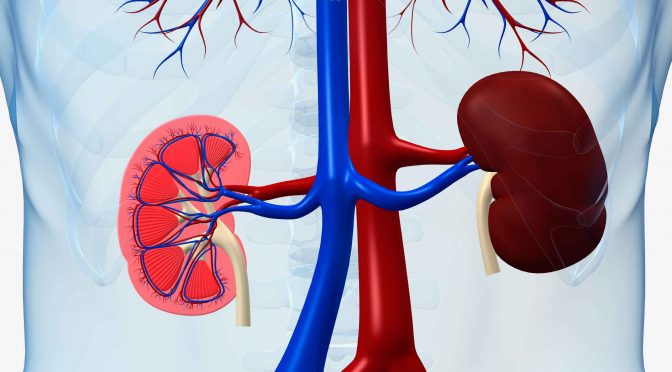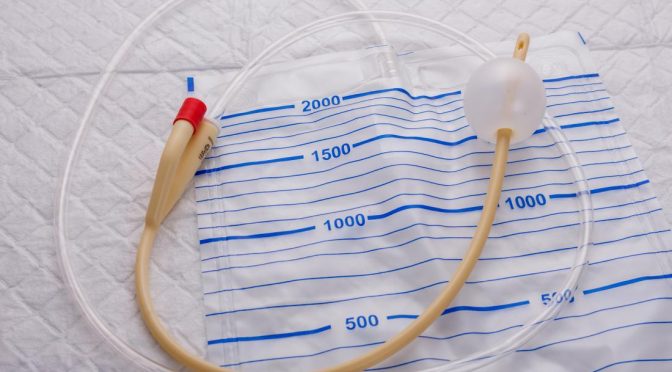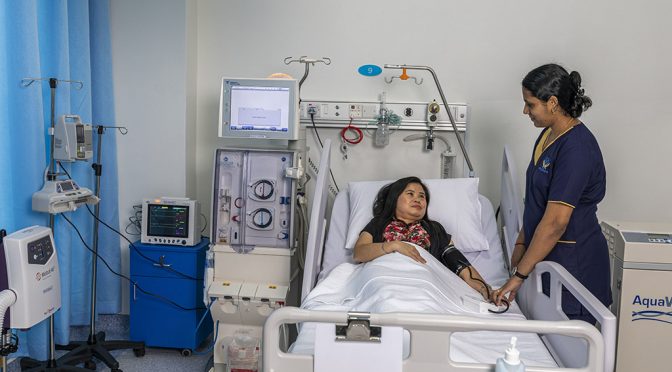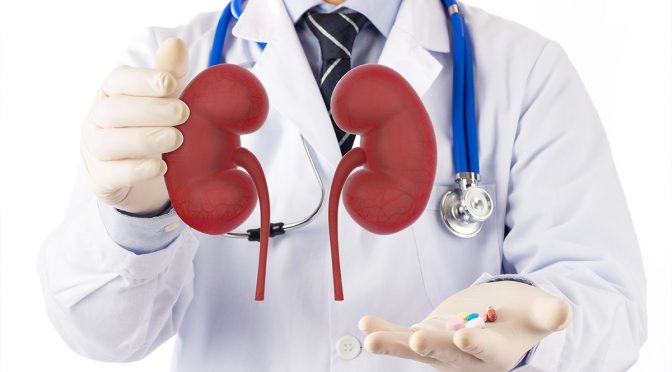Kidney diseases
Those at risk of developing end stage renal failure include persons with:
- Symptoms of kidney disease
- Diabetes
- Hypertension that is difficult to control
- Family history of kidney disease, diabetes and hypertension
- Chronic tobacco consumption, obesity and / or elderly (above 60 years)
- Chronic intake of pain relievers, e.g. nonsteroidal anti-inflammatory drugs such as ibuprofen, naproxen etc.
- Congenital defect of urinary tract
Screening in such high-risk individuals helps in early detection and diagnosis of kidney disease.
Early stages of chronic kidney disease are usually asymptomatic, laboratory tests are the only way of detection.
Symptoms of kidney disease
- Swelling of the face (especially on waking up), abdomen and feet
- Loss of appetite, nausea, vomiting and intractable hiccups occuring due to accumulation of waste in the blood
- High blood pressure: can occur at a very young age, or is very high at the time of diagnosis or is intractable
- Anaemia and weakness: characterised by generalised weakness, early fatigue, poor concentration and pallor
- Non-specific complaints: Lower back pain, generalised body aches, itching and leg cramps are common. Retardation of growth, short stature and bending of leg bones are common in children with kidney failure.
Urinary complaints like
- Reduced volume of urine
- Burning sensation while passing urine (dysuria), frequent urination and passing of blood or pus in urine
- Obstruction to the normal flow of urine can lead to difficulty in ‘voiding’ and poor stream of urine.
Symptoms of end stage renal disease
- Nausea
- Vomiting
- Loss of appetite
- Fatigue and weakness
- Sleep problems
- Changes in quantity of urine produced
- Decreased concentration
- Muscle twitches and cramps
- Swelling of the face, feet and ankles
- Persistent itching
- Chest pain, if fluid builds up around the lining of the heart
- Shortness of breath, if fluid builds up in the lungs
- High blood pressure (hypertension) that is difficult to control





0 Comment